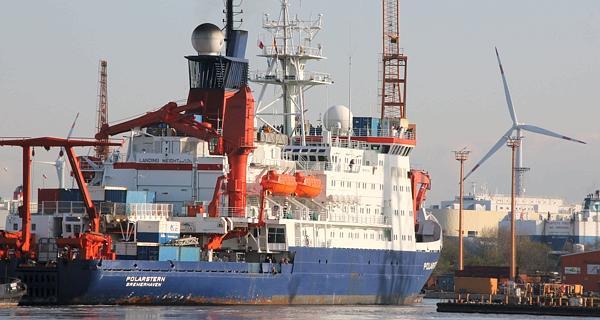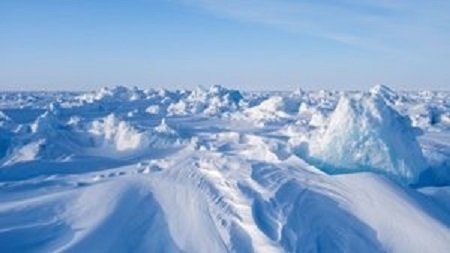In Germany, Bremerhaven, there are three hundred brave scientists who have been training in Sub Zero Temperatures to prepare for the journey of their lifetime. They will spend months surrounded in sea ice with overwhelming coldness, isolation, and darkness to make an arctic expedition named MOSAIC (multidisciplinary drifting observatory for the study of arctic climate) studying the effects of climate changes. The expedition starts from 20 September 2019 on Norway, Tromsø, letting the ship get trapped in ice.
The mission also includes research like Arctic depth, the enormity of the ice pack, and the currents that move heat, water, and ice all over the world. Six hundred scientists from 17 countries will also conduct studies regarding the rapidly changing physical, geochemical, and biological ecosystems of the Arctic regions.
To research the ecosystems of Arctic, Alison Fang, the head of the Mosaic Team, mentioned that the team was making a huge effort to create a whole wide depiction of what the Arctic’s ecosystems were going to be like in the upcoming years. She also stated that there is huge anxiety about polar bears, and she might have to exchange her microscope for a rifle scope.
Likewise, Fong also said with CBS News:
“Our scientists are skilled while handling polar bear safeties which consists of carrying a rifle for security. When the team works on remote sites on the ice, they will take measures by including minor electrical fences, personnel carrying rifles, flare guns and other safety equipment’s for protection on the vast arctic plains."
A German icebreaker called the “Polarstern” would be used as a home base, which will be fitted with scientific equipment turning it into a moving laboratory, including a mass of aircraft and other icebreakers. In addition to the harsh environment of the arctic for the team to survive, the ship also comprises of the sauna, swimming pool, and two bars on the Polarstern to provide the team a good camaraderie and relaxation.
The team will use Oceanographic models and previous experiences to try positioning themselves within the sea ice where the current is formed a new and stable so that the team can do researches and work on the frozen surfaces of the arctic.

The research ship Polarstern will assist as a home base for the team to study climate changes in the arctic (©: nwzonline.de)
The scientists are hoping to understand the impact of the climate changes that will affect the ecosystems. It’s considered to be an early warning system that will affect the whole ecosystem of the arctic plains due to the severe climate changes. The expedition on this ship will raise their morale and a better understanding of the changes that are going to be occurring in the arctic, making it to a whole new level of discovery.
To cope with what lies ahead, the team of scientists practiced using a remotely controlled device that measures light through the ice and piercing through the core to evaluate the thickness of the ice.
The warming of the arctic plains is much quicker than anywhere else on the earth. Scientists have never been able to research the isolated northern part of the arctic due to the winter coldness and the vast temperature dropping in the area. The crew will navigate close to the north pole of the arctic, stop the engine and wait for the water to freeze around the vessel, which will make the expedition easier and drift with the ice flow with some equipment.
The team will track the growing ice and waters with buoys along with instruments all over the surface in and below. Furthermore, a phalanx of sensors, aircraft as well as balloons will probe the arctic atmosphere to research the data. They will also use snowmobiles and helicopters to establish a network of secondary bases on the ice to make the expedition easier for them to conduct while carrying measurements of the climate. Besides, the team also going to be studying solar radiation levels, planktons population, geochemistry, clouds, and other factors that may help solve the forecasts of the arctic changes.
The expedition leader, Markus Rex, also stated that:
“You have seen that in the U.S. at the beginning of this year when the snowstorms and blizzards went down to Florida — that is all driven by climate change in the Arctic, and we need to understand that to understand how our extreme weather in the future will look like
The most formidable challenge in this expedition is Mental Fortitude and the extended time away from the loved ones. The team is bracing themselves for long periods of full isolation and complete darkness to cope with the arctic in the winter. The reason is that when its winter in arctic, its complete blackout, isolation, and zero-degree coldness, not only that, but the team is also going to be through the high-stress environment.
The team is making a huge determination in saving humanity by venturing in the arctic plains and researching for the future of mankind. Even though it means living in darkness and isolation or even freezing on ice just to make sure there will be no consequences in the future.
Rolf Gradinger also mentioned, who is an Arctic marine biologist, that this expedition is like a dream come true for the team that’s going to research in the cold and dangerous arctic region.

